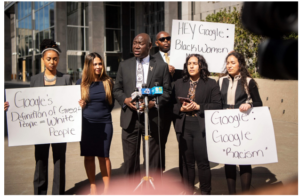Discrimination and Oppression of African-American Women
According to Collins (2002), “race, class, and gender represent the three systems of oppression that most heavily affect African-American women” (p.3). However, it is also important to consider formal institutions’ impact on African-American women’s oppression. Social institutions represent an interrelated system of social roles and systems that are organized and offer behavioral patterns that contribute to meeting basic social needs in society. Formal institutions have been linked to unequal access to resources among African American women in most societies in the United States. Prather et al. (2018) state that racial discrimination is the leading cause of reproductive and sexual health disparities among Black women living in the United States because of limited public health interventions to promote and improve health equity. Limited access to quality healthcare subjects women to oppression because they cannot afford high-quality healthcare services in private hospitals. This increases vulnerability to various diseases, thus pushing them to poverty and desperation, especially when they cannot provide for their families. The government has also failed to protect African American women from oppression in the private sector. Wingfield (2021) argues that although the United States Congress passed the 19th Amendment ruling that women should not be denied the right to vote regardless of their race, women of color continue to be denied the chance to participate in elections in some regions in the United States. Being denied the right to participate in elections by voting for a person’s preferred candidate is one of the main forms of oppression because it limits a person’s ability to participate in a democratic act that others are privileged to engage in. This has led to an increase in economic and occupational disadvantage among African American women.
Many private organizations have created vague antidiscrimination policies that create room for discrimination against African American women and their oppression. Some companies are also ignorant about the complaints raised by African American women when they are oppressed within the workplace, thus making it hard for African American women to access equal opportunities and be protected from oppression. For example, Google has been accused of discriminating against African American women. The company’s African American women who have been discriminated against have stepped out publicly to demand justice, as demonstrated in the picture below.
(Source: https://www.nbcnews.com/news/nbcblk/black-women-allege-googles-racist-culture-lawsuit-company-rcna21008)
The picture was taken in March 2022 when the African American women in Google filed a lawsuit against Google Company for racial discrimination. The women stated that the company denied African American women growth opportunities and ignored sexual harassment claims (Bunn, 2022). The employees also claimed that the company was defining greatness based on an employee’s skin color. Such incidents indicate the role of formal institutions in promoting discrimination against African American women. Therefore, it is important to determine what should be done to strengthen the measures taken by formal institutions such as the government and company officials to prevent the oppression of African American women. It is also important to enlighten African American women on what they can do to hold formal institutions accountable for violating laws passed to prevent African American women’s oppression. For example, African American women can be educated on reporting violations of antidiscrimination laws that subject them to oppression, such as suing the parties responsible for the violation and combining efforts through mass actions to push for equality in public institutions.
References
Bunn, C. (2022, March 22). Black women allege Google fosters’ racist culture’ in a lawsuit against the company. NBC News. https://www.nbcnews.com/news/nbcblk/black-women-allege-googles-racist-culture-lawsuit-company-rcna21008
Collins, P. H. (2002). Black Feminist Thought in the Matrix of Domination. In Black feminist thought: Knowledge, consciousness, and the Politics of Empowerment. Routledge.
Prather, C., Fuller, T. R., Jeffries, W. L., Marshall, K. J., Howell, A. V., Belyue-Umole, A., & King, W. (2018). Racism, African American women, and their sexual and reproductive health: A review of historical and contemporary evidence and implications for health equity. Health Equity, 2(1), 249-259. https://doi.org/10.1089/heq.2017.0045
Wingfield, A. (2021, January 6). Women are advancing in the workplace, but women of color still lag behind. Brookings. https://www.brookings.edu/essay/women-are-advancing-in-the-workplace-but-women-of-color-still-lag-behind/
ORDER A PLAGIARISM-FREE PAPER HERE
We’ll write everything from scratch
Question
Throughout this course, you will read scholarly work on questions of diversity, exclusion, and inclusion. You will write a weekly blog reflecting upon those issues, but rather than offering an unsubstantiated opinion on these matters, you’ll be expected to offer a unique but informed opinion supported by scholarly research and empirical evidence.
Discrimination and Oppression of African-American Women
You will have the freedom to choose the topic and the particular angle of the issue as you wish to explore it, but there are some clear parameters you’ll need to follow.
Each blog entry must have:
Minimum 500 words (15% penalty for falling short of the word count)
1 citation from academic source materials read that week in class (attached IN FILES). This must be cited with a page number and author. Sources may not be reused week-to-week.
1 citation of an academic source (a relevant peer-reviewed article) from outside of class. Sources may not be reused week-to-week.
1 citation of a news media article relevant to the topic.
At least 1 audio or visual element that adds substantial content to support your argument. This could be a link to a video, pictures, etc.


